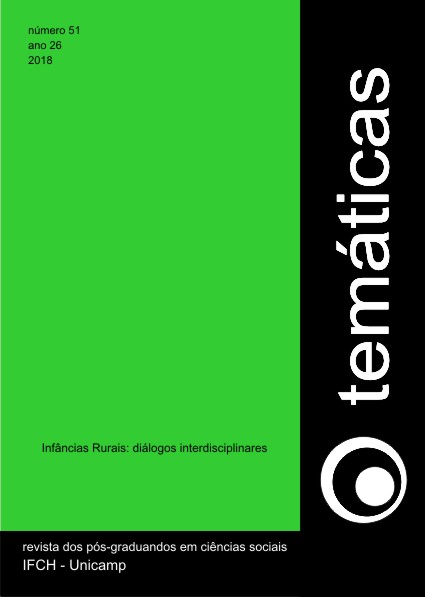Abstract
This article discusses the quilombola identification of avocadoes based on ethnography about / with children. Abacatal is a quilombola community located in the rural area of Ananindeua, a municipality in the metropolitan region of Belém-PA, and dates back to the beginning of the 18th century with the slave project of Africans in the colonization of the Amazon. The methodology was guided by contemporary studies of the child's anthropology to understand them as agents of the construction and determination of their social life, of those around them and, as well as of the society in which they live. In this sense, children influence and are influenced by culture, therefore, as much as adults participate in the production of senses and meanings, giving them a dynamic in the relations between stability and change in Abacatal. The study made it possible to understand the creative contribution of avocado children to rethink conventional schemes that involve children's experiences with references and identity processes and, in the case of Abacatal, particularly, showed their active participation in the struggle for territory.
References
ACEVEDO, R. M.; CASTRO, E. No caminho de pedras do Abacatal:experiência social de grupos negros no Pará. Belém: NAEA/UFPA, 2004.
ALMEIDA, A. W. B. Antropologia dos arquivos da Amazônia. Rio de Janeiro: Casa 8/ Fundação Universidade da Amazônia, 2008.
ALMEIDA, A. W. B. Os quilombos e as novas etnias. In: O’DWYER, E. C. (Org.). Quilombos: identidade étnica e territorialidade. Rio de Janeiro: FGV, 2002.
AMADOR DE DEUS, Z. Herdeiros de Ananse: movimento negro, ações afirmativas, cotas para negros. Tese de Doutorado. Universidade Federal do Pará. Instituto de Filosofia e Ciências Humanas. Programa de Pós-Graduação em Ciências Sociais, área de Antropologia. Belém-PA, 2008.
AMORAS, M. R. “No Abacatal (também), uma Flor”: um estudo antropológico sobre a relação criança & trabalho. Belém-PA, 2014. Tese (doutorado em Antropologia). Instituto de Filosofia e Ciências Humanas, Programa de Pós-Graduação em Sociologia e Antropologia – PPGSA, Universidade Federal do Pará-UFPA.

This work is licensed under a Creative Commons Attribution-NonCommercial-ShareAlike 4.0 International License.
Copyright (c) 2018 Maria do Socorro Rayol Amoras

